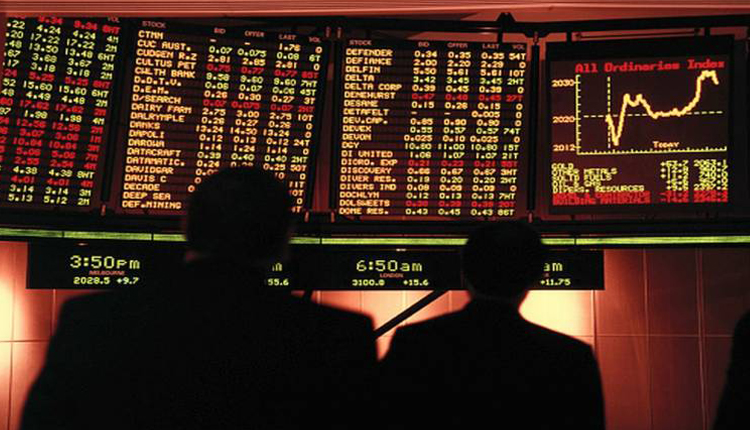Asian stocks were listless on Wednesday following President Donald Trump’s announcement that the U.S. would withdraw from Iran nuclear deal, with most markets recording slight declines.
Japan’s Nikkei 225 declined 0.52 percent, as most sectors traded in negative territory, although gains were seen in the mining sector.
Elsewhere, South Korea’s benchmark Kospi edged down by 0.22 percent. Despite the benchmark’s overall decline, gains were still seen in petroleum refiners, with S-Oil and SK Innovation up 0.47 percent and 1 percent, respectively. The junior Kosdaq was up 1.72 percent.
Greater China markets searched for direction. Hong Kong’s Hang Seng Index tacked on 0.4 percent after earlier hovering around the flat line. Gains were led by the energy sector, which was up 1.49 percent as CNOOC rose 1.97 percent. Technology stocks and financials also recorded moderate gains in afternoon trade.
Mainland markets traded slightly lower. The Shanghai composite slipped 0.05 percent and the Shenzhen composite eased by 0.08 percent.
Down Under, the S&P/ASX 200 tacked on 0.11 percent as declines in the heavily weighted financials subindex were offset by gains seen in most other sectors. The energy subindex rose 1.33 percent as oil producers advanced, with Woodside Petroleum up 1.13 percent.
MSCI’s broad index of shares in Asia Pacific excluding Japan slipped 0.1 percent in Asia afternoon trade.
Trump on Tuesday delivered on a pledge made during his election campaign to withdraw the U.S. from the 2015 Iran agreement, announcing that broad sanctions would be reimposed on the country.
The landmark accord lifted international sanctions on Iran in exchange for the country curbing its nuclear program. Iran says it will stay committed to the agreement and will continue negotiating with other parties to the deal, Reuters reported.
“It is still not known [what] the wider implications of the U.S. pulling out mean for the deal,” said ANZ analysts, adding that Trump’s announcement “puts into place a scenario that could see the crude oil market tighten significantly” in the second half of this year and into 2019.
Oil gained on Wednesday: U.S. West Texas Intermediate rose 2.29 percent to trade at $70.64 per barrel. U.S. crude futures had crossed the $70 level for the first time since end-2014 on Monday.
Brent crude futures were up 2.46 percent at $76.69.
Although renewed U.S. sanctions on Iran will reduce Iranian crude exports, “compliance with unilateral U.S. sanctions would be much more difficult to enforce than the multilateral measures implemented in 2012,” Paul Sheldon, associate director at Platts Analytics, said in a note.
Oil prices had declined in the last session although they settled above their session lows following Trump’s announcement. Analysts said the decision had mostly been priced in by markets beforehand, with oil prices recently buoyed by concerns over the impact that renewed U.S. sanctions on Iran would have on the latter’s oil exports.
The slight declines seen in Asia also came on the back of U.S. stocks finishing little changed on the back of Trump’s announcement, with the Dow Jones industrial average closing up 0.01 percent and the S&P 500 ending lower by 0.03 percent.
In currencies, the dollar extended its gains against a basket of currencies. The dollar index traded at 93.182 at 1:06 p.m. HK/SIN after rising to its strongest level in 2018 on Tuesday.
Against the yen, the dollar strengthened some 0.3 percent to trade at 109.48. The Australian dollar, meanwhile, slipped to trade at $0.7432 amid broader strength in the dollar.
In individual movers, Toyota announced it was expecting a 4.2 percent decline in operating profit this financial year. Shares of the automaker traded up 3 percent, outperforming declines seen in other major Japanese automakers.
Source: CNBC


